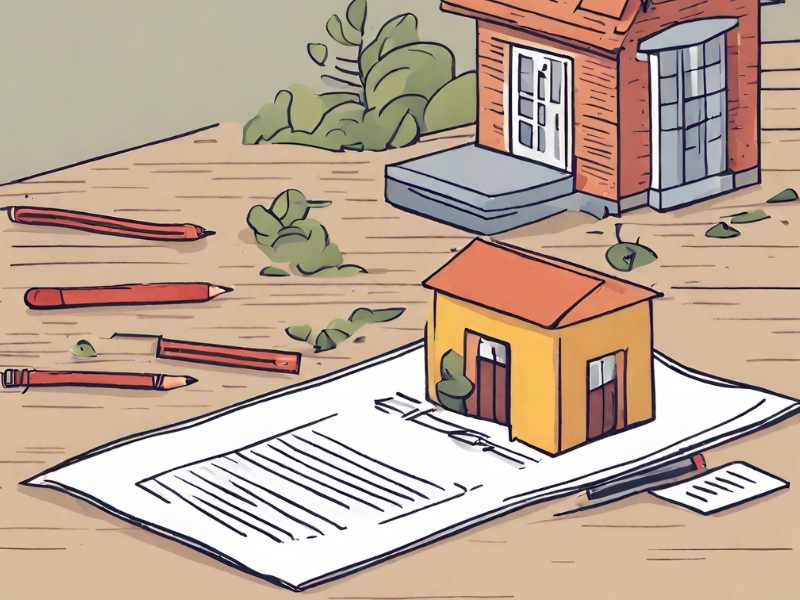
Mortgage Dove
Pay Off Mortgage or Invest: Navigating Your Financial Choices
Deciding whether to pay off your mortgage early or invest depends on your unique financial circumstances. Whether you've experienced a windfall or are steadily building your wealth, the decision involves weighing the pros and cons. Explore the advantages of paying off your mortgage early, including substantial interest savings and debt-free ownership. On the flip side, discover the potential benefits of investing your money, such as higher returns and future wealth growth. Each choice has its merits, and the decision should align with your financial comfort and current life situation. Now, let's explore the considerations for both options. Investing or paying off your mortgage depends on your financial situation. If your income has increased significantly, your choice might differ from someone who got a lump sum for investing. Look at the pros and cons of paying off your mortgage early, considering how much you'll save on interest and the freedom from debt. Check how much more you need to repay in your debt. It will be wise to pay extra early in the loan. But as time passes, putting more into investments, especially in retirement accounts, might make more sense. If you're unsure about investing, putting all your extra money into it might not be the best idea. Your decision should match your financial comfort and what's currently happening in your life. Paying off your mortgage early might seem tempting – owning your home outright and being debt-free is a significant financial milestone. While some argue in favor of investing extra funds rather than paying off the mortgage, there are compelling reasons to consider an early payoff, especially if you've recently experienced a financial boost. Pros Of Paying Off Your Mortgage Cons Of Paying Off Your Mortgage Paying off your mortgage early has its perks, but investing that extra cash in retirement funds or stocks for your future might be more strategic. Early mortgage payments help dodge extra interest, like early investments benefit from compounding over time. Investing early is a robust financial move. Now, let's weigh the pros and cons of investing versus paying off your mortgage. Pros Of Investing Your Money Cons Of Investing Your Money Many individuals opt to pay down their mortgage and invest simultaneously, striking a balance between building home equity and saving for the future. While this approach limits the funds allocated to each goal, it offers a compromise, allowing progress on both fronts. Refinancing to a shorter-term loan is a strategy for those eager to expedite mortgage repayment. However, it may come with higher payments and potential impacts on savings. For those prioritizing mortgage payoff, exploring refinancing options to a shorter-term loan is an avenue to consider. While this may elevate monthly payments, it enables accelerated mortgage repayment, saving on interest costs and fostering substantial home equity. However, be mindful of potential costs associated with this strategy, which could significantly impact savings. When faced with surplus cash, prudent financial decisions extend beyond the mortgage and investments. Establishing an "emergency fund" can safeguard against unforeseen circumstances, such as car repairs, medical expenses, or job loss. Additionally, if burdened by multiple debts like student loans or credit card debt, directing extra funds towards these obligations can alleviate financial strain. Prioritizing debt elimination can reduce overall financial stress, particularly when managing a mortgage alongside other liabilities. What Is Compounding Interest? Compounding interest occurs when your money earns interest, and that interest, in turn, makes more interest. For instance, if you invest $100 and it earns $5 in interest, leaving it untouched would result in future interest being calculated on $105. This compounding effect can significantly boost investment gains, something to consider when comparing with potential mortgage interest savings. How Does the Tax Deduction for Mortgage Interest Work? You can deduct the interest paid on a mortgage loan up to $750,000 on your federal return, subject to specific rules. If married and filing separately, the limit is $375,000. To claim this deduction, the loan must be used to buy or build your primary or second home, and you need to itemize on your tax return. However, weighing itemizing against claiming the standard deduction is crucial, which might be more financially beneficial. What Are Alternatives to Paying Off My Mortgage or Investing? Consider building an emergency fund for financial security, especially during economic downturns. This fund can help cover mortgage payments during financial distress. Saving for retirement is another option, involving investment in vehicles like an IRA or 401(k). Additionally, prioritizing paying off high-interest credit card debt might be more financially beneficial than focusing on your mortgage, especially if the credit card balances are substantial. Before speeding towards early mortgage payoff, consider interest rates, balances, and potential savings. It's worth noting that mortgage interest often comes with tax benefits. The interest paid can reduce taxable income for many homeowners, offering a financial perk. However, deciding between mortgage payoff and investment demands careful consideration. Seek advice from a financial planner and tax advisor. Their expertise can assist in analyzing your unique situation and aligning your goals effectively.Should I Pay Off My Mortgage Or Invest?
Choosing To Pay Off Your Mortgage Early
Choosing To Invest Your Money
Paying Off Mortgage and Investing Simultaneously
Other Considerations
Frequently Asked Questions
The Bottom Line
"Mortgage Dove makes home financing convenient for every American. You can count on us to provide a home buying experience tailored to your personal needs and financial situation. We strive to give you the peace of mind that your home financing goals can be achieved.”

Mortgage®
www.mortgagedove.com



-and-how-does-it-work.png)